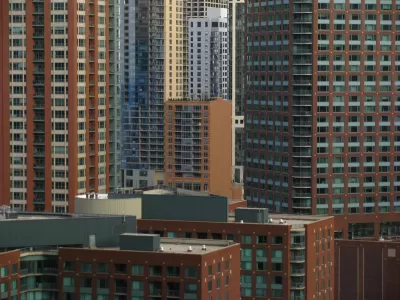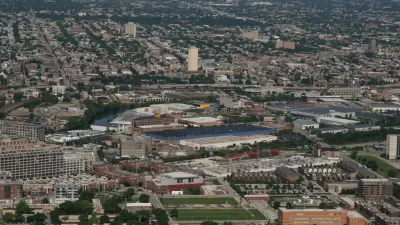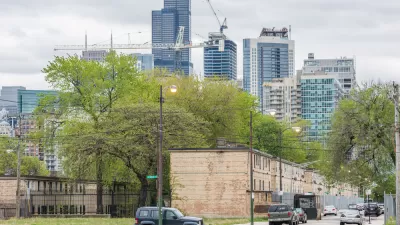This month, changes to Chicago's Affordable Requirements Ordinance (ARO) will go into effect, raising the in-lieu fees developers must pay to opt out of building affordable units downtown.

Following a March City Council vote, Chicago will begin enforcing an updated version of its Affordable Requirements Ordinance (ARO) in October. The existing ARO, enacted in 2003, "requires developers of private residential projects to make 10 percent of their units affordable, or pay $100,000 to a city-run affordable housing trust fund for every unit they do not build."
"The new ARO raises that fee to $175,000 and $125,000 for downtown developers and those who build in higher-income census tracts, respectively, while slashing that price to $50,000 per unit in areas home to mostly low- and moderate-income residents." This will, it is hoped, shift new affordable units to areas where cheap housing is hard to come by.
The rule change has generated some push-back from developers, who cite already-thin margins. However, "affordable units also offer steady income for private developers, who can count on the subsidized rents of their tenants even during dips in the rental market."
Related Companies Midwest president Curt R. Bailey expressed a willingness to work within the new rules: "It's going to make the bar a little higher to build in downtown, but at the end of the day it should produce a better city for us if we have affordable housing downtown."
FULL STORY: Feature> Windy and Affordable

Alabama: Trump Terminates Settlements for Black Communities Harmed By Raw Sewage
Trump deemed the landmark civil rights agreement “illegal DEI and environmental justice policy.”

Planetizen Federal Action Tracker
A weekly monitor of how Trump’s orders and actions are impacting planners and planning in America.

The 120 Year Old Tiny Home Villages That Sheltered San Francisco’s Earthquake Refugees
More than a century ago, San Francisco mobilized to house thousands of residents displaced by the 1906 earthquake. Could their strategy offer a model for the present?

In Both Crashes and Crime, Public Transportation is Far Safer than Driving
Contrary to popular assumptions, public transportation has far lower crash and crime rates than automobile travel. For safer communities, improve and encourage transit travel.

Report: Zoning Reforms Should Complement Nashville’s Ambitious Transit Plan
Without reform, restrictive zoning codes will limit the impact of the city’s planned transit expansion and could exclude some of the residents who depend on transit the most.

Judge Orders Release of Frozen IRA, IIJA Funding
The decision is a victory for environmental groups who charged that freezing funds for critical infrastructure and disaster response programs caused “real and irreparable harm” to communities.
Urban Design for Planners 1: Software Tools
This six-course series explores essential urban design concepts using open source software and equips planners with the tools they need to participate fully in the urban design process.
Planning for Universal Design
Learn the tools for implementing Universal Design in planning regulations.
Clanton & Associates, Inc.
Jessamine County Fiscal Court
Institute for Housing and Urban Development Studies (IHS)
City of Grandview
Harvard GSD Executive Education
Toledo-Lucas County Plan Commissions
Salt Lake City
NYU Wagner Graduate School of Public Service





























